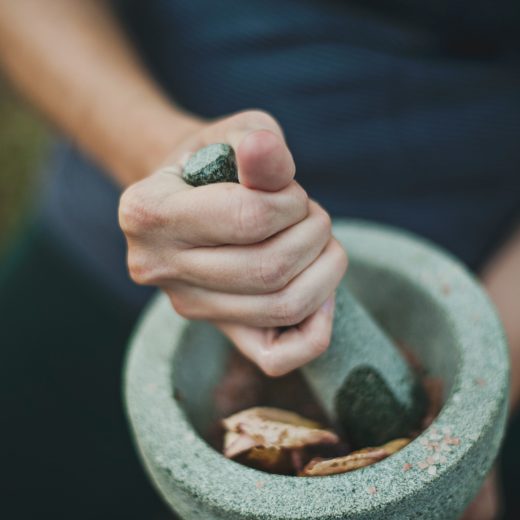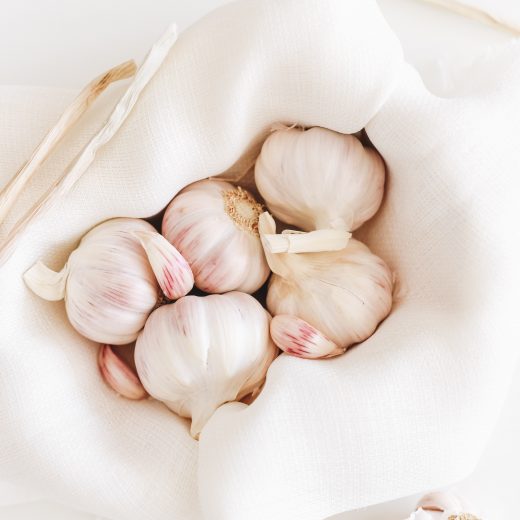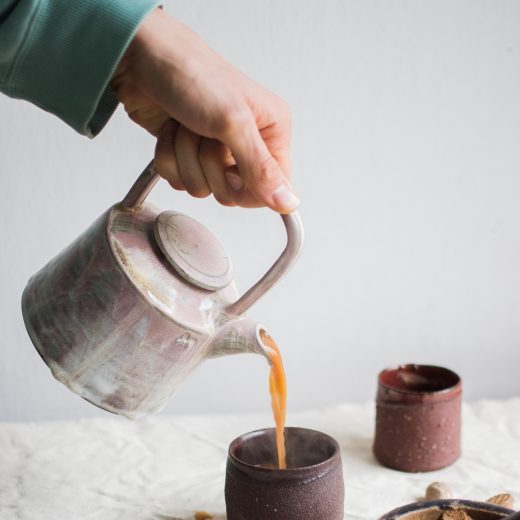The flowers are blooming, the temperature is not yet blazing…it’s the perfect time to appreciate our Arizona landscape until…..Achoo! Spring has sprung and with it the discomfort of seasonal allergies. Whether it be the palo verdes or the olive trees, Tucson and its surrounding area has its own unique bounty of pollen spreaders that make many with seasonal allergies miserable — and a natural approach to preventing and treating allergies can help.
Seasonal allergies are the body’s response to something innocuous that the body has decided is dangerous. Certain immune cells release histamine – a neurotransmitter that makes us feel itchy and sneezy – in order to “attack” the pollen or other allergen. Many allergy medications focus on stopping the histamine release as histamine is a key player in this uncomfortable process. These medications, anti-histamines, can work fine for some people but for others they come with a variety of side effects. For this reason, many people seek more natural methods for dealing with their allergies.
From the naturopathic perspective, treating seasonal allergies is best done with a three- pronged approach. First, choosing specific natural substances, like vitamins, supplements, or herbs, to take regularly at the correct dose can effectively reduce the body’s allergic response. Secondly, changing the diet can help to minimize inflammation, which worsens allergies, and to modulate immune cells so they are less likely to release histamine. Lastly, being proactive around the house to make it a safe, non-allergenic sanctuary is key to reducing allergen exposure and thus minimizing symptoms. In combination, these three pieces provide an effective seasonal allergy treatment plan.

Supplements and Herbs
You may have seen the allergy supplement section at the natural food store and immediately became overwhelmed. There are a lot of vitamins and herbs that claim to help allergies! The challenge can be that what works for one person may not work for the next so there is a bit of trial and error to find out what works best for you or your family member. Here are a few of my favorite supplements and herbs with general adult dosing. (Appropriate dosing for children is dependent on weight, so unfortunately I cannot give you that information easily.) Before starting any of these, please be sure to check with your (or your child’s) physician to make sure it is a safe fit:
- Vitamin C: Adults can take up to 6 grams (6000mg) divided throughout the day. The right dosage is found by finding the dose that causes a person to have diarrhea and then backing off a bit, a process known as bowel tolerance. High dose vitamin C prevents secretion of histamine by white blood cells.
- Quercetin/Bromelain Complex: These two ingredients are found naturally in onions and pineapple. When taken more concentrated together as a supplement, they effectively stabilize immune cell membranes and prevent the release of histamine. Quercetin and bromelain often come in capsules with 300mg of each/cap: adults can take 2-3 caps up to 3 times a day.
- Essential Fatty Acids (fish oil): Fish oil is known for its anti-inflammatory properties. During allergy season, adults can take 2000mg total EFA/DHA to reduce the body’s overall inflammation and strengthen cell membranes.
“Before starting any supplements or herbs, be sure to check with your (or your child’s) physician to make sure it is a safe fit.”
- Probiotics: Studies have shown that probiotics are effective in reducing runny noses caused by allergies as well as making the immune system less hypersensitive, thus preventing future seasonal allergies. Strains found to be most effective include Lactobacillus GG and Lactobacillus gasseri taken daily.
- N-Acetyl Cysteine: NAC is the supplement form of the amino acid cysteine, a building block of proteins. It is a potent antioxidant and it works great to stop mucus and clear congestion. The adult dose is 500mg 3x day.
- Nettle: This herb, when made into a tea, tastes just like freshly mowed grass. Though it may not be anyone’s favorite flavor, it works very quickly to take the itchy eyes and runny nose away. The herb is also high in minerals which is an extra benefit. Adults and kids alike can safely drink this tea throughout the day for symptom management.
- Butterbur: An herb known more for migraines, butterbur works by reducing leukotrienes, an inflammatory chemical that worsens allergy symptoms. Adults can take up to 150mg in divided doses daily. Caution as it is in the ragweed family so for those with ragweed allergies, it could make symptoms worse.
Want more natural medicine tips? Schedule an appointment with Intuition Wellness’ naturopathic family physician, Dr. Kate Sage NMD.
Diet
During allergy season, it is important to remember that some foods can make seasonal allergies worse and some can make them better. A therapeutic diet during this season would attempt to reduce/eliminate the inflammatory foods that worsen symptoms while increasing the anti-allergy foods. I always like to focus on the positive first (what one CAN eat). Here are the foods that should be increased in quantity during allergy season as they are high in certain chemical substances that reduce allergy symptoms: Onions, garlic, ginger, fish, turmeric, kiwi, pineapple, local honey, berries, broccoli, cauliflower, and green leafy vegetables.

Most of the foods on the list of those to avoid won’t surprise you but a few may. Foods to avoid during allergy season include: Sugar and artificial sweeteners, alcohol, milk (yogurt and kefir are okay), cheese, citrus, processed foods, fried foods, and bananas. Dairy products are on this list because they have been shown in studies to increase mucus production and worsen symptoms. Kefir and yogurt may still be kept in the diet if they are well tolerated. Citrus fruits have a strong cross allergy reaction with many tree pollens which can make your allergies more pronounced. Bananas are high in sugar and also create mucus.
If a person has significant seasonal allergies, I often will recommend doing food allergy testing so we can pinpoint exact foods that cause more inflammation for that person. This gives us the opportunity to create a more individualized dietary plan to reduce allergy symptoms.
To Do Around The Home
Obviously the best way to get rid of seasonal allergies is to avoid exposure to the allergen. This unfortunately is not possible as we have to (and should) go outside. That said, there are things you can do to turn your house into a safe sanctuary, free from allergens.
- Shower after being outside: This may sound like a lot but it is worth it to at least rinse each time you come in from outside. Pollen and dust get trapped in your hair especially so getting it off and away from your body can greatly reduce symptoms and keep your house a safe space. If this is not realistic, be sure to at least shower before bed.
- Clean bedding: Change/wash your bed sheets and blankets once a week and change your pillow case every night.
- HEPA air filter: Get a high quality air filter for your bedroom.

- Pets: Do your best to keep pets out of your bedroom, especially those that go outside. You may consider brushing or bathing them more often as they too bring pollen in from the outdoors.
- Air ducts: Get your heating/AC air ducts professionally cleaned at least once a year, preferably before allergy season.
- Neti pot: Cleaning out your nasal passages with saline seems intense at first but over time, even children learn to appreciate it benefits. Think of it as a shower for your sinuses.
I gave you the “kitchen sink” of allergy treatment ideas on purpose so you can pick and choose what will work best for you and/or members of your family. A few other things to make sure that you also do for yourself (regardless of whether or not you even have seasonal allergies) include maintaining a regular exercise routine (to move your lymph), drinking plenty of water, and scheduling some down time for relaxation/meditation every day. Hopefully a combination of these things will help you to enjoy the joy of spring again.
At Intuition Wellness Center, we specialize in health and wellness services for children, young adults, and their families. If you think you would like some extra support, we’re here for you.
Written by: Dr. Kate Sage, Naturopathic Family Physician


